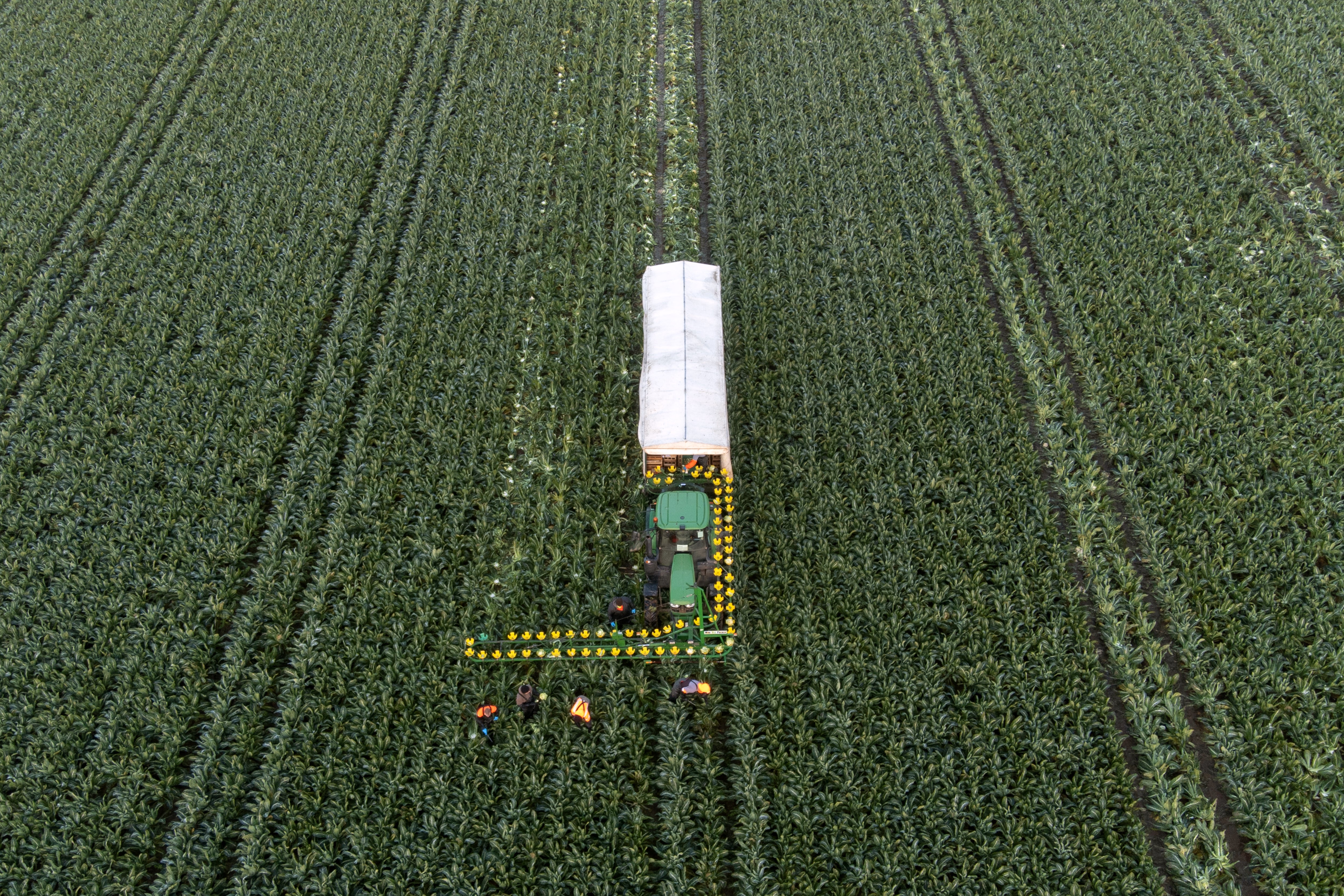Investment needed for UK soils to boost food production, say farmers
Healthy soils are essential for producing food, storing carbon and boosting wildlife.

Your support helps us to tell the story
This election is still a dead heat, according to most polls. In a fight with such wafer-thin margins, we need reporters on the ground talking to the people Trump and Harris are courting. Your support allows us to keep sending journalists to the story.
The Independent is trusted by 27 million Americans from across the entire political spectrum every month. Unlike many other quality news outlets, we choose not to lock you out of our reporting and analysis with paywalls. But quality journalism must still be paid for.
Help us keep bring these critical stories to light. Your support makes all the difference.
More investment is needed for the UK’s soils to ensure food production and deliver environmental goals, farmers have urged.
The National Farmers’ Union (NFU) said healthy soils were essential to producing food in Britain, storing carbon, and boosting wildlife, as well as preventing flooding and helping the UK cope with dry weather.
In a new report, the NFU is calling for more investment in research and innovation in maintaining soil health, and incentives to encourage farmers to take up management measures that improve its condition.
The organisation also wants to see sustainable food production prioritised in managing peatlands, flexibility in tenancy agreements to reward tenant farmers for boosting soil quality and the development of a market in carbon offsets to provide payments for boosting carbon storage in soils.
Our national food security has been thrown into sharp relief under the immense pressure caused by the crisis in Ukraine and the simultaneous global wheat supply shocks from that
Farmers can improve soil health through measures such as changing ploughing to minimum till where appropriate, adding organic matter and manures, growing cover crops, crop rotation, agroforestry, limiting farm machinery and maintaining drains, the report said.
NFU vice president David Exwood said: “Everything we do producing food, energy and fibre is absolutely reliant on the health of our soils.
“Our national food security has been thrown into sharp relief under the immense pressure caused by the crisis in Ukraine and the simultaneous global wheat supply shocks from that.
“The challenge for farmers and growers is to produce more food from our land, as well as delivering public goods.”
He said the pressure on food security showed there was not enough land in the UK to have separate land for growing food in some areas and delivering public goods in others.
“We must have the twin track approach of growing food and looking after our environment from the same soil, the same fields. That is why it is so vital we get our soil management right.”
Despite the current upheaval, soaring costs of inputs for farming and the wholesale changes in the subsidy regime post-Brexit, Mr Exwood warned that “we cannot take our eye off the need to improve our soil management and greenhouse gas footprints”.
The Environment Department (Defra) has focused on soil health in the first part of the new Environmental Land Management (ELM) scheme – the Sustainable Farming Incentive (SFI), a move which has been welcomed by the NFU.
Mr Exwood said the incentive scheme would not deliver anything if it did not engage farmers and the NFU wanted to work with Defra to make it work for farmers.
He said it was vital new payment schemes fairly rewarded farmers for public goods such as healthy soil and nutrient management and enable them to enhance their vital work.